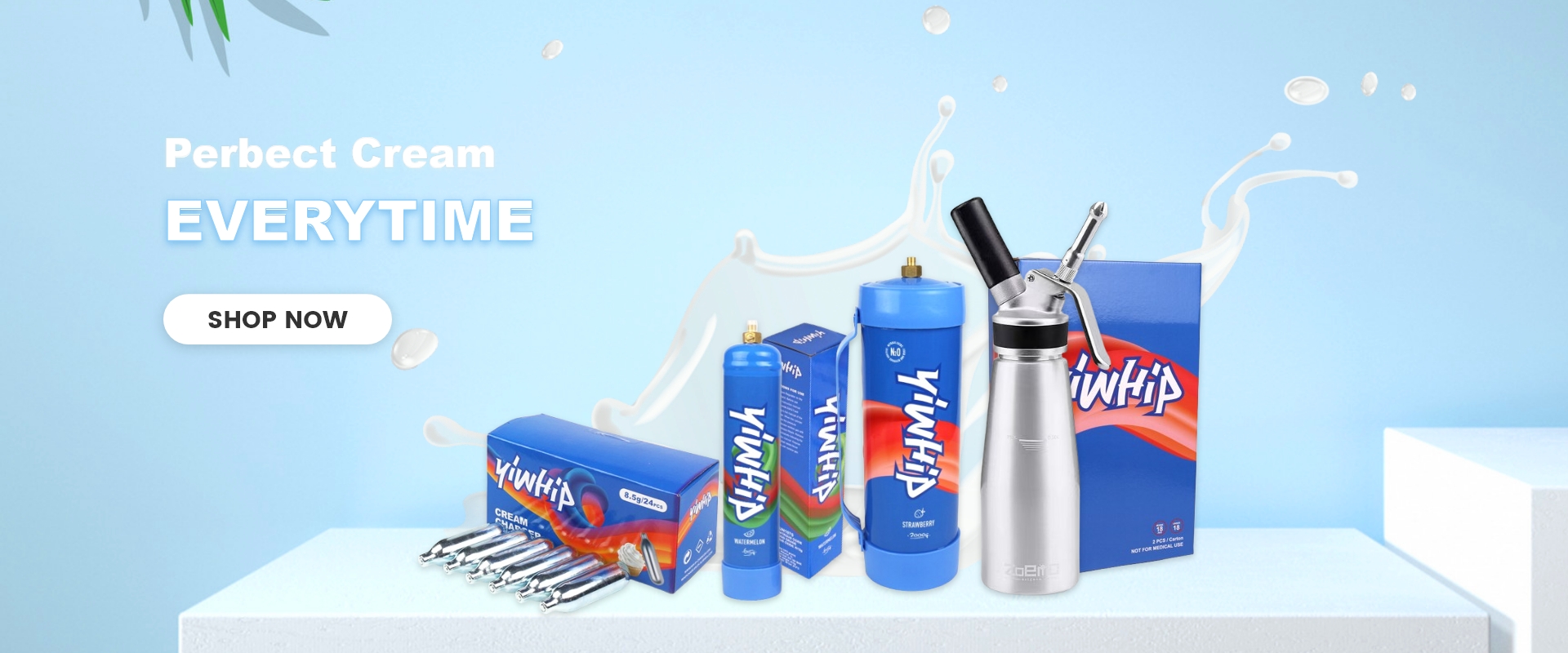The Rise of Online Whipped Cream Chargers Sales
With convenience shaping the way consumers interact with products, whipped cream chargers are seeing a surge in online retail options. Originally used for food preparation, especially in culinary environments or coffee shops, nitrous oxide (N2O) chargers — colloquially known as 'whippets' — now have broad digital accessibility. This shift to online shopping platforms makes these products readily available not just for legitimate kitchen usage but also raises concerns among health authorities across Sweden and other European regions. While e-commerce has expanded user convenience dramatically, the uncontrolled purchase behavior it enables comes with significant caveats regarding public safety, addiction risks, and law enforcement capabilities.
Digital commerce allows users to browse and buy items without face-to-face checks. That is beneficial for many goods—but concerning where misuse potential looms large.
Why Buying Whippet Chargers Online is Becoming a Worrying Trend
In Sweden, regulatory measures around nitrous oxide use remain complex. Although it’s illegal to sell N2O canisters intending for recreational abuse, their sale for “culinary purposes" still continues largely unimpeded. Online retailers—both based domestically and abroad—offer packs of 10–25 cream charger cartridges that fit popular whipped cream dispensers, marketed clearly for restaurant-grade or home kitchens.
But the same websites lack proper gatekeeping tools. They allow buyers, including minors, easy access through just an age checkbox prompt — which often can be bypassed without ID verification or any robust validation system. In contrast, physical purchases would at least involve human interaction and visible age proof requirements. This gap highlights how internet-based sales can sidestep even the minimum preventative layers society expects for controlled-substance-like products such as gas cylinders intended for food use but vulnerable to inhalant recreation.
The Legal Status and Regulatory Gray Zone
In many countries like Germany and Canada, laws already reflect tight controls on possession for non-culinary consumption. However, in parts of Europe—Sweden among them—the legality remains tied strictly to stated use cases: commercial food service or personal domestic cooking needs.
N2O sellers exploit this gray area online: they include disclaimers stating products shouldn't be used recreationally but proceed regardless with fast-shipping, discreet delivery packaging, which indirectly implies buyer privacy — a subtle appeal for non-intended users seeking anonymity. Such disclaimed sales fuel growing worry within law enforcement agencies tasked with monitoring inhalant abuse statistics.
What makes it harder? The product itself isn’t classified as a prohibited drug — which legally permits its presence on marketplace-style platforms and e-retail domains. This ambiguity creates fertile soil for increased experimentation by young audiences curious about mind-altering alternatives outside standard illicit or prescription-based drugs.
Risks Behind Recreational Inhalant Misuse
Synthetic gas, when misused, causes euphoria due to central nervous depression. But alongside fleeting sensations lie immediate and long-term harms. These hazards extend beyond short-time impairment during intoxication — they span psychological dependence, hearing loss from auditory neuron damage, and Vitamin B12 suppression caused by long-standing N2O exposure.
The Swedish Health Authority has reported several instances related to recreational usage patterns contributing not only to emergency hospital cases involving dizziness and nausea attacks but chronic neuropathy in younger adults experimenting consistently over months. A few breaths per week may not seem harmful at first, but neurologically the brain pays in irreversible ways when oxygen exchange in critical tissues slows down under chemical imbalance.
In one medical survey conducted between 2020–2022 involving patients admitted due to inhalant toxicity syndromes linked directly to repeated whipper charging unit use, nearly 67% experienced persistent symptoms ranging from memory fog to limb paralysis.
E-Commerce Loopholes: How Are Swedish Consumers Reacting?
The rapid growth in web storefronts specializing or bundling cream dispenser gases shows clear consumer demand. Whether that translates to lawful baking hobbyists or masked seekers of intoxication stays unclear without behavioral analytics.
A local Gothenburg café owner recently commented: "We see two trends—one for responsible professionals, the other being a worrying teenage culture looking to 'get high’." Social media communities centered on DIY food crafting coexist with darker forums discussing techniques for direct nasal intake via small metal canister adapters—an accessory you're not sold by authorized culinary suppliers, yet accessible if you search carefully.
For youth-target demographics particularly interested in novel substances offering legal status with perceived harmless impact, **e-marketplaces become unintentional enablers,** despite platform rules claiming ethical adherence. Once shipped discreetly via third-party logistics services without real-time transaction tracking systems integrated into municipal health records—there is effectively no oversight left in the post-purchase journey. It is here the risk peaks, silently and out of public health’s sight.
- Fast delivery leads to easy access within 48 hours.
- Lack of verification encourages underage buying practices.
- Masked language allows misleading intent behind 'culinary supply' tags.
- Online reviews normalize non-kitchen related use experiences.
- Social copycat behaviors amplify risk-taking trends.
What Can Regulators Do About the Current System's Gaps?
To truly make progress on addressing irresponsible N2O usage stemming primarily from online purchases, a multidimensional strategy must evolve involving multiple key parties. Lawmakers alone cannot fully address a systemic issue rooted in e-commerce complexity and modern payment anonymity.
Hence, Sweden could explore a series of policy interventions backed by stronger enforcement tactics such as:
- Mandated age verification for online chemical sales (including gas cartridges);
- Monitoring of suspicious shipping activity or repeat buyers;
- Cross-border import limitations similar to tobacco or e-cigarette product bans;
- Cybernetic audits to detect misleading marketing;
- Social media platform accountability via algorithm suppression tools targeting inhalant use tutorial content.
Education is vital too. Public campaigns need to target not just high school groups—who form part of a highly experimental demographic—but parents and educators too, so early intervention strategies can work more proactively. Many caregivers are not fully aware that nitrous oxide can carry the addictive profile equivalent to inhalable solvent products.

